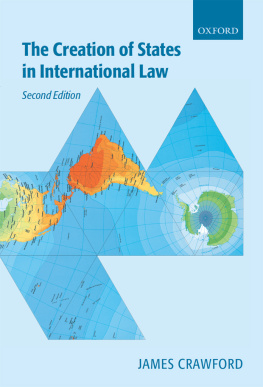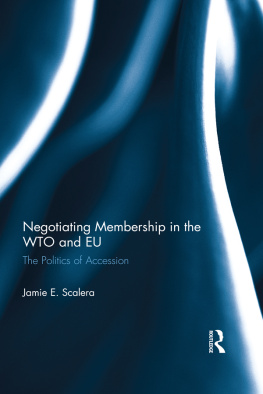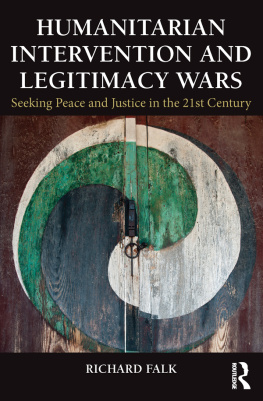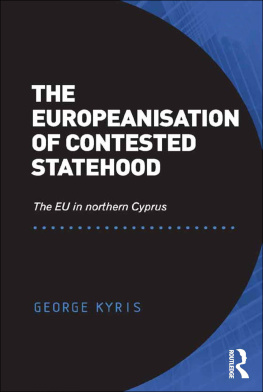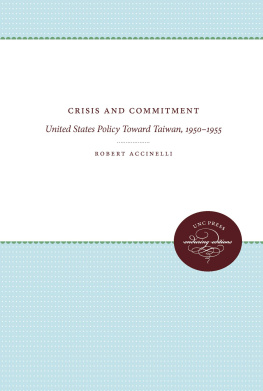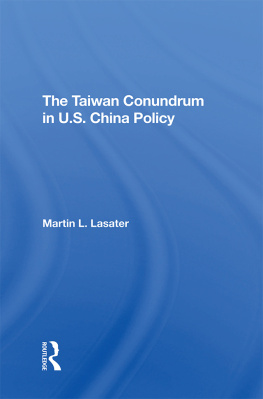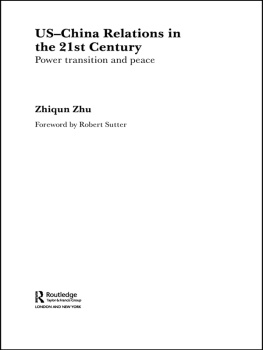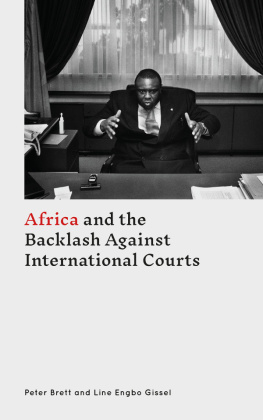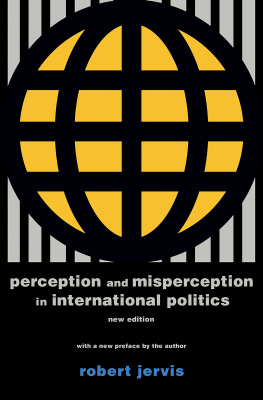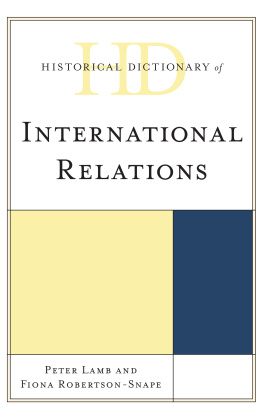The Creation of States
in International Law
SECOND EDITION
JAMES CRAWFORD
SC, FBA, BA, LLB (Adel), DPhil (Oxon), LLD (Cantab)
Whewell Professor of International Law, University of Cambridge
Former Member of the International Law Commission


Great Clarendon Street, Oxford OX2 6DP
Oxford University Press is a department of the University of Oxford.
It furthers the Universitys objective of excellence in research, scholarship,
and education by publishing worldwide in
Oxford New York
Auckland Cape Town Dar es Salaam Hong Kong Karachi
Kuala Lumpur Madrid Melbourne Mexico City Nairobi
New Delhi Shanghai Taipei Toronto
With offices in
Argentina Austria Brazil Chile Czech Republic France Greece
Guatemala Hungary Italy Japan Poland Portugal Singapore
South Korea Switzerland Thailand Turkey Ukraine Vietnam
Oxford is a registered trade mark of Oxford University Press
in the UK and in certain other countries
Published in the United States
by Oxford University Press Inc., New York
J Crawford 2006
The moral rights of the author have been asserted
Crown copyright material is reproduced under Class Licence
Number C01P0000148 with the permission of OPSI
and the Queens Printer for Scotland
Database right Oxford University Press (maker)
First published 2006
First published in paperback 2007
All rights reserved. No part of this publication may be reproduced,
stored in a retrieval system, or transmitted, in any form or by any means,
without the prior permission in writing of Oxford University Press,
or as expressly permitted by law, or under terms agreed with the appropriate
reprographics rights organization. Enquiries concerning reproduction
outside the scope of the above should be sent to the Rights Department,
Oxford University Press, at the address above
You must not circulate this book in any other binding or cover
and you must impose the same condition on any acquirer
British Library Cataloguing in Publication Data
Data available
Library of Congress Cataloging in Publication Data
Data available
Typeset by Newgen Imaging Systems (P) Ltd., Chennai, India
Printed in Great Britain
on acid-free paper by
Antony Rowe Ltd., Chippenham, Wiltshire
ISBN 9780198260028 (Hbk.) 9780199228423 (Pbk.)
1 3 5 7 9 10 8 6 4 2
Preface to the Second Edition
The first edition of this book was based on a thesis, supervised by Ian Brownlie, which was submitted in 1976 for the degree of Doctor of Philosophy in the University of Oxford. At around 180,000 words the thesis was almost too long to be examined; it was also too long to be published in full. An abbreviated version, updated as far as possible to 31 December 1977, was published by Oxford University Press in 1979. It was awarded the American Society of International Laws Certificate of Merit in 1981.
Since the first edition much has happened in international relations and international law, not least in relation to the subject matter of this book. If its argumentthat the creation of States is a matter in principle governed by international law and not left to the discretion of individual Statesis now widely accepted, the illustrations and the specific instances that could be used to substantiate and illustrate that argument have multiplied. Some outstanding disputes then pending (South-West Africa (Namibia); Southern Rhodesia (Zimbabwe); the divided States, especially Germany; the micro-States; East Timor; Hong Kong, the Baltic States) have been more or less resolved. With a few exceptions (Palestine and Western Sahara the most significant) decolonization has been largely achieved. But new situations have arisen, especially those resulting from the dissolution of States in Central and Eastern Europe. The case law is still not rich but there have been major additions to it. Although the first edition remained the only comprehensive treatment of statehood in international law in the English language and although there were frequent requests for a reprint, this did not seem appropriate when so much had changed and when so much new material was available. I also came to regret some of the suppressions from the original thesis. Given complete latitude by the Press in terms of the length of a second edition I have taken the opportunity of restoring some of the material and of updating and revising all of it.
At one level, this was easier to do because I still maintain the basic argument. I do not see how international law can coherently leave these issues to be decided as a matter of discretion by individual States, as the rhetoric of recognition implies. I believe that international law is, at least to this minimal extent, a coherent system. Moreover, the values that international law in this context representsself-determination, non-annexation of territory by force, fundamental human rightscannot be protected if the only basis for statehood is effectiveness, if power grows, irrespective, out of the barrel of some or many guns. For international law to concede that its most fundamental concept is purely a question of fact would amount to a form of unilateral disarmament, given its now-parallel profession that these basic values are peremptory.
At another level it has been a major exercise, because so much has happened and so much more has been written. The result of the revision is a much longer book than the first edition, even if one still faithful to its main themes and arguments. I also hope this edition corrects some of the faults of the first edition. A fellow Australian, Hedley Bull (who I regret never meeting) commented in his Times Literary Supplement review of the first edition that it was infuriatingly indecisive. I agree, and I have tried to come off some of the fences on which the young scholar rather awkwardly sat. But some might now complain that even longer discussions of past problems are unnecessary in an era of universal United Nations membership, where formal equality is the order of the day and all the forms of dependence are now expressed in different, mostly extra-legal ways. Why go at length, it may be asked, into the status of special entities such as Transkei or Berlin or Danzig or Tangier or the British Dominions whose like we will never see again? Here I disagree. There is a wealth of historical experience which is, in the first place, interesting in itself. The periods of colonization and decolonization, of Great Power world-making and remaking, of the dissolution of Empires and Cold War-waging were expressed in a variety of specific forms, and the conflicts over them cannot be understood if their actual expression is ignored. The past was experiencedand experienced as presentnot in swathes but in particulars, and a careful account of the particulars still carries useful lessons even if we believe our circumstances to be new ones. And anyway we are more likely to fall into errors of the past if we are ignorant of it. When the government of the United States sought to detain aliens without trial on the perpetual leasehold of Guantanamo Bay, it was helpful to be reminded of the English Court of Appeals decision in 1960 that for habeas corpus what matters is present territorial administration, not the location of residual sovereignty. Thus the old law of protectorates re-emerged in the brave new world of the war against terror.

